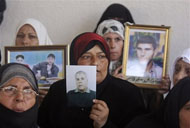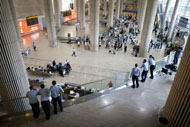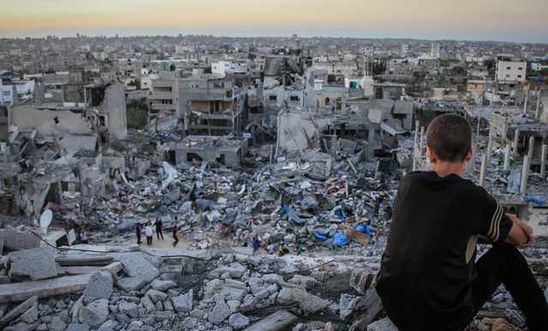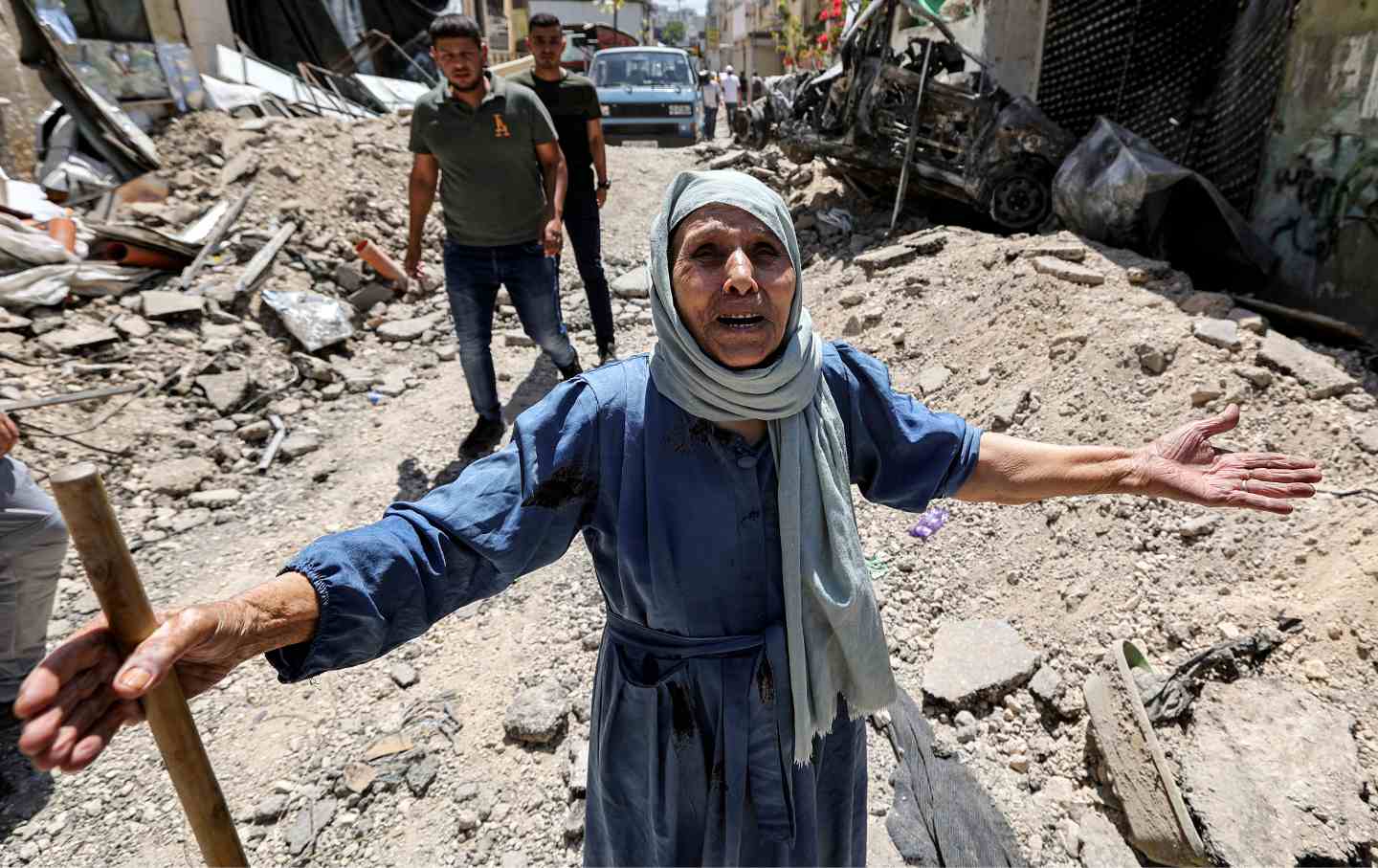On August 18, the Israeli government announced it would release 199 Palestinian prisoners from its jails as a gesture of good will to Palestinian President Mahmoud Abbas and his West Bank government. The prisoners will most likely be released during next week's visit to the region by US Secretary Condeleezza Rice.
Israel has said the release is primarily aimed at boosting President Abbas's Palestinian Authority in the face of Hamas' rule in the Gaza Strip. Additionally, it is hoping the release of these prisoners will also somehow push along the on-again off-again negotiations over Israeli Corporal Gilad Shalit, who has been kept hidden somewhere in Gaza since June 2006. This at least, is the opinion of head of the Shin Bet, Israel's security service, Yuval Diskin, who told the Israeli cabinet that the release would likely "accelerate" negotiations over Shalit. Diskin, however, warned that the release could also concomitantly make Hamas even less flexible in its demands since Israel is releasing two long term Palestinian prisoners accused of killing Israelis.
The two in question are Mohammed Abu Ali Yata and Saeed Al Ataba, both now in their fifties. The men have been in prison since the 1970s and both are accused of involvement in Israeli deaths.
This is the second time Israel has released prisoners who they describe as "having blood on their hands". Jewish blood that is, which for years has always been an indelible red line for the Israeli government. Sameer Quntar, the Lebanese prisoner who spent 29 years in an Israeli prison was the first to break this taboo, released in a prisoner swap with Hizbullah in June. Quntar, who was convicted of killing two Israelis in a botched kidnapping operation in 1979 was released in exchange for the bodies of two Israeli soldiers taken captive in the July 2007 Lebanon war.
The other prisoners are not as controversial to Israel. While at least 34 of those slated for release still have five years or more left of their sentence, the overwhelming majority are all slated to finish their terms in a matter of months and are convicted of minor charges. There are also four women included on the list.
Regardless of Israel's motives behind this so-called goodwill gesture, the Palestinians always welcome the release of any political prisoner from Israeli incarceration. Practically however, 199 prisoners is a drop in the sea of almost 11,000 Palestinian political prisoners currently held behind Israeli bars. Palestinians have long insisted that the prisoner issue must be at the top of the agenda of any negotiations between themselves and Israel, continuing to demand that all of its political prisoners be released in a final deal.
Like always, prisoners are the perfect pawns on the chess board of politics. Right now, Israeli Prime Minister Ehud Olmert is desperately trying to clinch some kind of victory for himself before he falls out of Israeli political life for good. His name has already been permanently tainted by corruption charges, damage he understands is irreversible in the eyes of his people. Since a final agreement with the Palestinians is far from reach, bringing home Shalit is his next best bet. Shalit's case is also emotionally charged, which means that if he can bring him home, he would have gained a tiny space in the hearts of his people even if they have already voted him out politically.
Many Israelis are hoping that this release of prisoners will be a precursor to a Shalit deal, even though none of the prisoners are Hamas members. Abbas, and in turn his Fateh party, are also looking towards a more comprehensive prisoner deal in which Marwan Barghouti, their number one man in prison, will be set free. Israel understands this aspiration completely and is holding out on any deal on Barghouti for now, most likely saving his release until Hamas' demands over Shalit are finalized. Barghouti is currently serving five consecutive life sentences, one for every Israeli death for which he was allegedly responsible.
Given that Israel has already released prisoners with "blood on their hands," starting with Quntar and continuing on next week with Abu Ali Yata and Saeed Al Ataba, the Israeli public may very well be growing accustomed to the idea. Of course there are those staunch opponents who will never waver in their uncompromising stances towards the Palestinians, but the overwhelming majority of Israelis understand that political sacrifices must be made in order for real deals to be reached. For this reason, the idea of swapping Shalit for Barghouti has been growing more and more acceptable to the Israelis who would once have never even considered it.
If anyone should be listened to in Israel, it is the Shin Bet, which is responsible for Israel's internal security. Just months after Shalit was kidnapped, Israeli environment minister and former Shin Bet deputy chief Gideon Ezra said he would endorse a swap between Barghouti and Shalit. While Olmert first downplayed Ezra's statements, Barghouti's name was soon on the official agenda during prison discussions in the Israeli cabinet.
Whether or not next week's prisoner release will play a role in any future swap involving Gilad Shalit remains unknown. It is also unclear whether the intended outcome of strengthening Abbas will be achieved given the many other factors at play on the political arena. Hamas is still in control of the Gaza Strip and is showing no signs of relinquishment. On the contrary, the Izzedin Al Qassam Brigades, Hamas' military wing, warned Israel on August 20 that if Israel continues to stall in the Shalit negotiations, the latter is looking at a fate similar to that of missing Israeli pilot Ron Arad. Hamas has also accused Israel of furthering the split between the two governments by discriminating in its choice of prisoners. The de facto government did, however, maintain that the release of any Palestinian prisoner from Israeli jails is a "triumph for the Palestinian people."
If there is any truth to statements made by political leaders, this is it. The freedom of political prisoners will always be welcomed by the Palestinians regardless of who was behind the move or why it was made. Still, as families and friends of these 199 Palestinians rejoice in their homecoming, for the people, leadership and probably for the prisoners themselves, the victory is bittersweet. Thousands more men, women and children remain behind bars, there because of their commitment to Palestine's cause. They too, hope it is their turn next because beyond the political maneuvering, all Palestinian prisoners, regardless of their political affiliations, are waiting to come home.
Joharah Baker is a Writer for the Media and Information Programme at the Palestinian Initiative for the Promotion of Global Dialogue and Democracy (MIFTAH). She can be contacted at mip@miftah.org.










